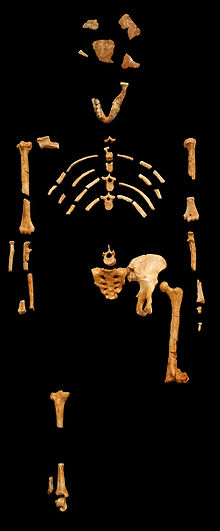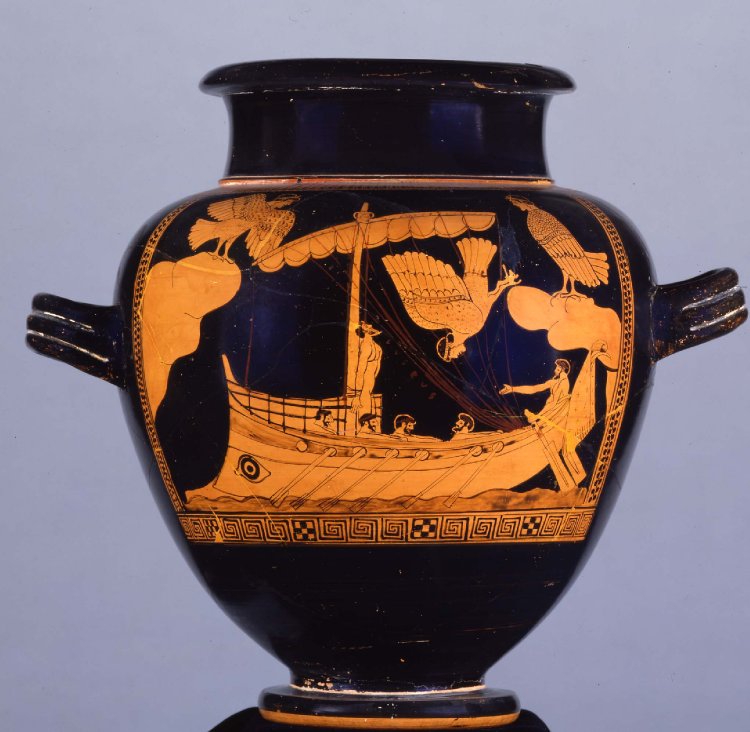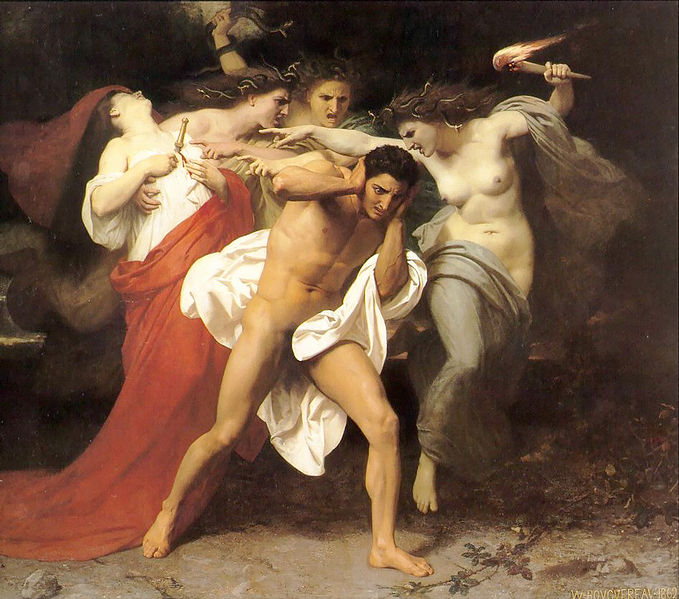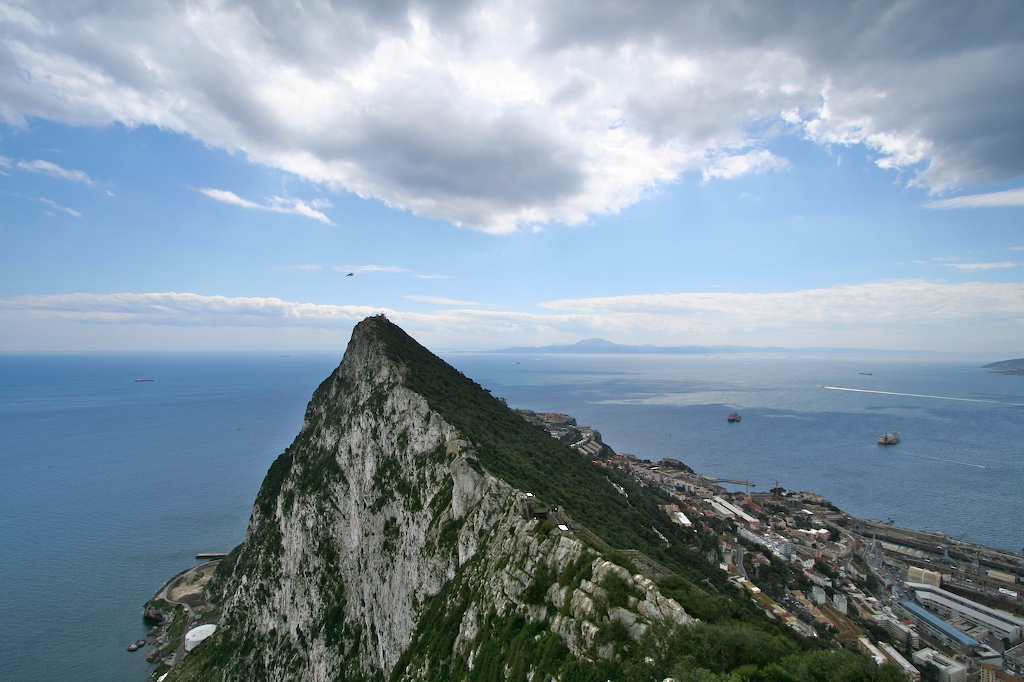[Note: This post is dedicated to my friend Jack Wright, Regents Professor of Geography at New Mexico State University, like Herodotus an inveterate traveler, like Pytheas a curious wanderer.]
Humans are by nature discoverers. Anthropologists tell us that our earliest discoveries, the ones that have been taken to define human nature—the invention of tools, for example—were in fact the discoveries of our distant ancestors. The first known pre-human tool wielder was Australopithecus afarensis, whose most famous representative was the slender, toothy, small-brained skeleton “Lucy,” discovered by Mary Leakey. So built into our DNA is the urge to discover that it’s impossible to imagine human beings without it.
But the idea of discovery—the self-conscious perception of ourselves as discoverers and advancers of knowledge—is, in the Western intellectual tradition, a relatively modern invention. In fact, it was a product of the Renaissance, an age of seemingly boundless curiosity.
Curiosity, the engine of discovery, was however by no means a Renaissance invention. To travel and observe the new was something characteristically Greek as well. The prototype was Odysseus, “who wandered much, . . . who saw the cities of many men and knew their minds.” Of course, Odysseus “wandered much” not because he had embarked on an intentional expedition of discovery but because he was blown off course so many times in his journey home. Odysseus wasn’t an explorer or a man in search of discovery. He wasn’t even a traveler. He was only just a wanderer whose most earnest hope and desire was to find the way back home to the familiar surroundings of Ithaca.
The ancient Greeks considered wandering to be a regression to the natural state—a state directly the opposite of the stability and civilization for which the Athenians so prided themselves. “For mortals, nothing is more wretched than wandering,” Odysseus says. To wander was to be thrust into the realm of suffering. Fittingly, Oedipus was condemned to a life of wandering when he was exiled after being discovered as the murderer of his father and the lover of his mother.
Worse still was the wandering of madness—wandering with no return. Alienated not only from society, the madman is also alienated from himself. Orestes cries, “my mind, ungovernable, has won me over and drags me.” Like a charioteer careening off-course, Orestes feels his rebellious senses bolting, whirling him around like a conquered prey, and his mind is “borne by steeds distraught” to a desolate nowhere. Mad wandering is the compulsive response to this terrifying external agent that hunts, pursues, chases and finally possesses, the self.
Herodotus, on the other hand, was an inveterate traveler. While he is often called the Father of Anthropology, Herodotus was really more of a tourist than an ethnologist. Although he was inexhaustibly curious about the world that lay beyond the Greek Peloponnese, he wasn’t interested in the strange cultures he observed in order to understand them on their own terms, but only as oddities that confirmed the correctness of the Greek view of the world. He describes flying snakes, fox-sized ants that mined gold dust, men with the heads of dogs and men with no heads at all, whose eyes are set in the middle of their chests. Yet, as with reports of the intervention of the gods, he often distances himself, remarking that he’s not sure he can believe all that he’s heard.

Roman copy of a Greek bust of Herodotus from the first half of the 4th century BC. Metropolitan Museum of Art
While not ethnography, Herodotus’s Histories was nevertheless a heroic attempt to push back the frontiers of knowledge, whether in customs, cultures, or nature. His project, of subjecting the world to historie, or “inquiry,” was a product of the age. He wrote the Histories around 440 BC, in the middle of the most vibrant century in the history of ancient Greece. For Horodotus and his contemporaries, living in an intellectual environment heady with a sense of discovery, seemingly infinitude of wonders awaited being identified and explained—without recourse to the supernatural.
Travel in the Mediterranean and Aegean worlds was easier for Herodotus’s generation than it had ever been before. Though never completely safe, travel in Herodotus’s day imposed fewer hardships and dangers. New roads were built; inns appeared; pilgrimages increased, producing sightseeing and tourism. The Athenians were passionate travelers. Thucydides said that young Athenians were eager to embark on the (as it would turn out disastrous) Sicilian expedition because they longed to see the sights far away from home.
In the ancient world, the Pillars of Heracles, Antiquity’s name for the two promontories that flank the entrance to the Strait of Gibraltar, symbolized the limits of knowledge. The farthermost limits reached by Heracles, whose legendary labors took him westward as far as Erythia, but no further, the Pillars of Heracles delineated the frontier of the known world. Renaissance tradition held that the pillars bore the warning Nec plus ultra (“nothing further beyond”), serving as a warning to sailors and navigators to go no further. In antiquity, the Atlantic Ocean was still a fearful place.
A few Greeks did venture beyond the Pillars of Heracles, including some accidentally, such as Kolaios of Samos, a merchant enroute to Egypt around 630 BC, who was blown wildly off course and ended up on the southwestern coast of Iberia.
The only known “voyage of discovery” venturing beyond the Pillars of Heracles was the one undertaken by Pytheas of Massalia, a geographer and explorer from the Greek colony of Massalia (modern day Marseilles). Around 325 BC, Pytheas journeyed to northwestern Europe, becoming the first Mediterranean sailor known to have circumnavigated Britain and visited the amber coasts of the North Sea and Baltic.
Remarkably, Pytheas even reached the remote island of Thule, or Iceland, a place of frozen seas and boiling seas, where it is daylight for six months during a year, things never seen nor even imagined by anyone confined to the Mediterranean. Such extreme contrasts—a unique feature of Iceland—must have seemed bizarre beyond belief. Even a modern visitor to Iceland has the feeling of being on an alien planet.
Pytheas was also something of an ethnologist. His observations about the people of Thule included descriptions of storing grain in huts, gathering herbs and roots, and manufacturing mead. His ethnological survey of this distant hunter-gathering society with few domesticated animals and living barely above a subsistence level must have seemed positively exotic to the cultivated Athenians.
Returning home from his voyage, Pytheas produced a treatise titled On the Ocean. Although the work no longer survives, it was well known in antiquity. The text was cited by at least 18 Greek and Roman writers. Though only a provincial from Marseilles, Pytheas contributed fundamental scientific research that connected him to the Athenian world. He made his voyage during the time when Aristotle’s Lyceum flourished. Historians have speculated that he may have come to Athens and reported on his findings in the Lyceum. In fact, the first notices of Pytheas’s voyage were by Aristotle’s pupil Dicaearchus.
To the profoundly Mediterranean Greeks of the time, Pytheas’s reports of Atlantic wonders seemed barely credible. The geographer Strabo regarded rumors of the frozen land of Thule as nothing more than the “lies of Pytheas.” To Strabo, Pytheas was just a fabricator of tall tales. “Any man who has told such great falsehoods about the known regions,” he scoffed, “would hardly be able to tell the truth about places that are not known to anybody.” The historian Polybius was equally dismissive of reports of Pytheas’s voyage into the unknown.
Which of the two—the wanderer or the traveler—is the true discoverer? Since the Odyssey, world discoveries have resulted not from planned journeys to the periphery, like those a tourist makes, but of voyages that pass through the margins of the known. The ancient Greeks saw a parallel between wandering and scientific inquiry. Polybius, who made numerous voyages through the Mediterranean countries, admired Odysseus for having wandered to many places instead of gathering material from books. Like Odysseus, Polybius too is said to have “wandered over every land and sea.”
Unlike Herodotus the tourist, who went to known regions and, as American Express reminds us, “never left home without it” (that is, without the comfort kit of being Greek), Pytheas wandered to places unknown, without any knowledge of what was “out there.” Like all tourists, Herodotus wore invisible blinders and tended to regard the rest of the world as being designed, however imperfectly, for the amusement and wonderment of the Greeks.
Tourists never really leave home; they bring home with them. Only wanderers discover the world.
Further Reading:
Barry Cunliffe, The Extraordinary Voyage of Pytheas the Greek (New York, 2003)
Silvia Montiglio, Wandering in Ancient Greek Culture (Chicago, 2005)
Pytheas of Marsalia, On the Ocean, edited by Christina Redman (Chicago, 1994)
Duane W. Roller, Through the Pillars of Herakles: Greco-Roman Exploration of the Atlantic (New York, 2006)
Note: In Part 2 of this post, “Curiosity and Discovery,” I shall look more closely at the idea of discovery and explore the relation between curiosity and discovery from antiquity to the Renaissance.










